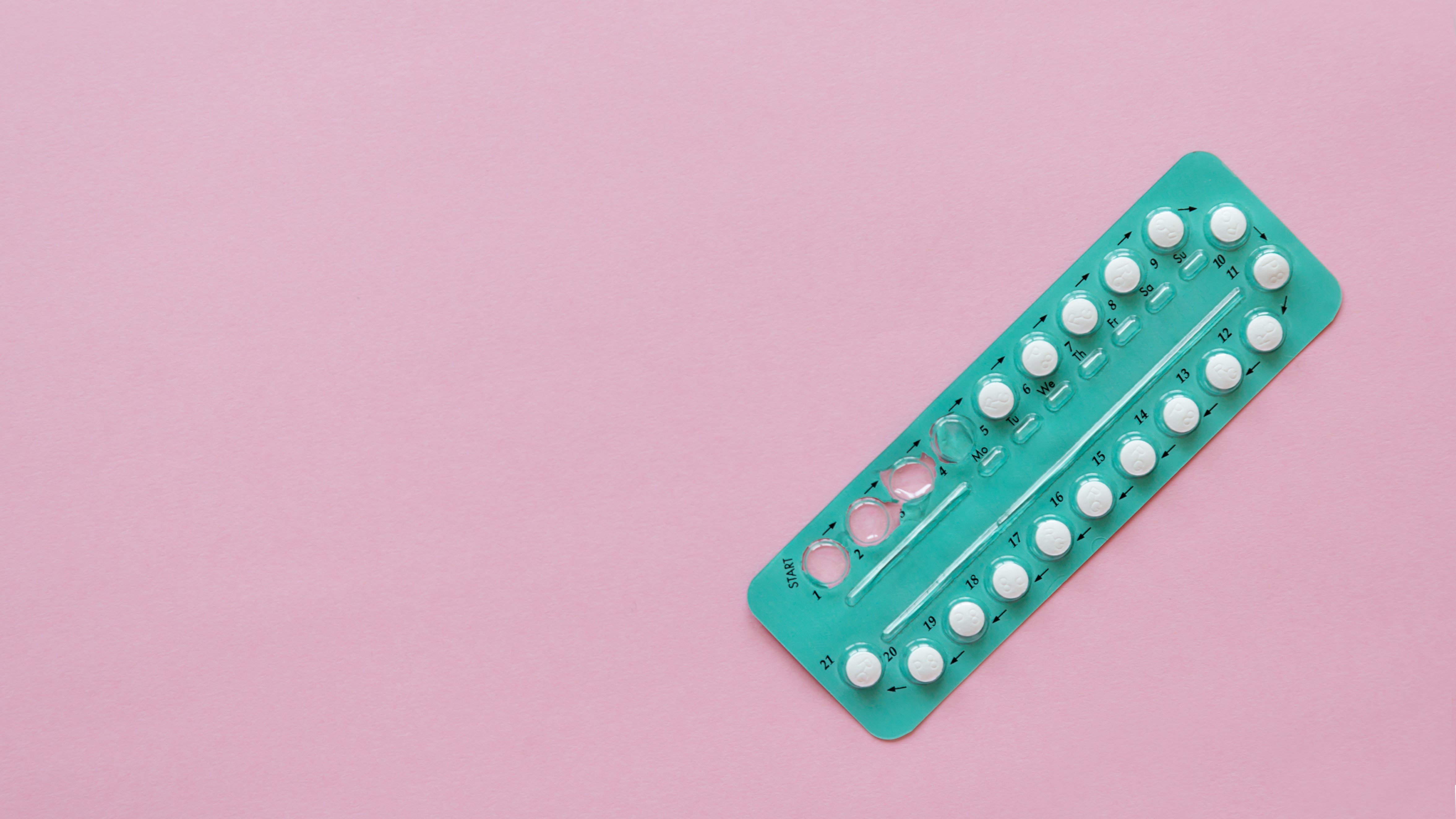Pain during sex is more common than you think—here’s what could be causing it and what you can do to treat it
Three out of four women in the US report experiencing pain during sex at some point in their life


Pain during sex is a common problem, but it can feel isolating as many women don’t talk about it or realize just how common it is. While there are many causes of pain during or after sex, there is also a range of treatments out there, so you shouldn’t suffer in silence.
According to the American College of Obstetricians and Gynecologists (ACOG), pain during sex is incredibly common, with nearly three out of four women experiencing it at some point in their lives. For some, the pain is short-term, but for others, painful sex is a long-term problem.
There are a number of factors that could be causing pain during sex, including vaginal dryness or infection. Thankfully, there are also several treatments, including using a vibrator and the best lube to reduce vaginal dryness before sex or medication prescribed by a doctor.
To help you understand what might be causing your pain during sex and what you can do about it, we spoke to an expert.
What is pain during sex?
The technical term for pain during sex is dyspareunia, says Dr. Anne Henderson, gynecologist and menopause specialist at the Kent Menopause Clinic. Pain or discomfort can be felt in a woman’s labia, vaginal or pelvic areas either during or immediately following sex.
There are two different types of pain you may be experiencing:
Superficial dyspareunia: “This is the term given to pain which is experienced in the vulva or vaginal region. The pain is not felt deep in the pelvis,” says Dr. Henderson.
Sign up for the woman&home newsletter
Sign up to our free daily email for the latest royal and entertainment news, interesting opinion, expert advice on styling and beauty trends, and no-nonsense guides to the health and wellness questions you want answered.
Deep dyspareunia: “This is the term given to pain which is experienced within the pelvis. For example, around the bladder, ovaries or sometimes towards the back causing lower back pain,” says Dr. Henderson.
Whichever kind of pain you experience, dyspareunia can greatly impact your physical health and emotional well-being. Just because you don't hear many women talking about their experiences with pain during sex doesn’t mean it’s uncommon or can’t be treated.
If you are suffering from pain during sex or immediately after, speak with a medical professional to discover the root cause of your pain and find a suitable treatment.
What are the symptoms of dyspareunia?
The symptoms of dyspareunia and the severity of pain felt during sex can vary, but according to Dr. Henderson the most common symptoms include:
- Burning or tearing sensation
- Throbbing
- Cramping pains similar to menstruation
- Stabbing sensation which can extend from the pelvis to the vagina
- Muscle spasms
- Pelvic cramping
- Muscle tightness
What causes pain during sex and what are the treatments for dyspareunia?
Dr. Henderson says most women will experience pain during sex as a one-off. But, if you experience pain for six to 12 weeks with no improvement, she suggests speaking to your doctor. There are many reasons as to why you might feel pain during penetrative sex, the most common include:

1. Vaginal dryness
Vaginal dryness can lead to painful sex and can be caused by a wide range of problems. According to Dr. Henderson, causes include low mood, anxiety, vaginal infections, and STIs, or hormonal contraceptives such as the combined pill. As you age, your vagina ages too, and this can also cause dryness as you go through menopause.
“Women who are experiencing dryness will notice these symptoms and may also be aware of generalized discomfort even when they are not sexually active," Dr. Henderson says. “A diagnosis needs to be made before treatment to determine the most effective method.
“Lack of lubrication can increase friction during sex, and this can cause microtears and fissures, leading to pain and bleeding. If a woman is using the combined pill and does not wish to stop, a high-quality lubricant is recommended.
“Lubricants should always be organic, paraben, and fragrance-free, with the best quality options using coconut oil and shea butter," says Dr. Henderson.
Oil-based lubricants should not be used with condoms, however, Dr. Henderson recommends sticking to water-based options.
2. Vaginismus
Vaginismus is the involuntary spasm of the vaginal muscles and is a very common cause of painful sex.
“It involves an involuntary contraction of the strong pelvic floor muscles, usually upon attempted penetration. It makes intercourse impossible,” says Dr. Henderson. “This happens at a subconscious level. It's not something that a woman can necessarily control herself merely by trying to relax. True vaginismus makes any kind of vaginal examination or penetrative sex impossible and also very painful.”
Finding the root cause of vaginismus is the key to figuring out the best form of treatment. Dr. Henderson says treatment usually involves extensive psychosexual therapy with a sex therapist or certified counselor or cognitive behavioral therapy.
“Both treatments need to be addressed by a skilled and experienced practitioner. Treatment includes finding out the initial cause, which is usually a traumatic emotional or physical event,” says Dr. Henderson. “It can include sexual abuse, sexual assault and other underlying psychological issues, including some religious issues.”
If you are experiencing any of the symptoms of vaginismus, speak with your doctor for further advice.

3. Vulvodynia
Vulvodynia has a wide range of symptoms, including pain, burning, and a stabbing feeling during sex.
“The most common point of pain is six o’clock at the entrance to the vagina. It used to be known as 'Burning Vulva Syndrome,' which accurately describes the type of symptoms women may experience. The condition is not fully understood, but it is thought to be a neuropathic type of pain. In simple terms, it can best be described as 'faulty wiring' between the vulva and the brain,” Dr. Henderson explains.
Causes generally include some form of acute or severe stress, which can be emotional, psychological, or physical.
“You may not initially link the event to the subsequent development of vulvodynia,” Dr. Henderson adds. “There may be a gap between the event and the symptoms developing. Even a severe viral illness can lead to vulvodynia. The exact link between the two events may not be obvious.”
Treatments for vulvodynia include counseling, topical steroids, and pain-reducing drugs, such as Amitriptyline.
“Women should also avoid any potential irritants, such as soaps, bubble baths, bath oils, and intimate deodorants," Dr. Henderson says. Instead, she recommends using gentle body washes and organic sanitary pads and tampons to avoid further irritation.
4. Vaginal infections
Pain during sex and general discomfort or a sore vagina can also be caused by vaginal infections. Some infections occur due to hormonal or pH changes, such as thrush. Others are caused by sexually transmitted diseases such as chlamydia and gonorrhea.
“Painful sex can arise because of inflammation in the pelvis and genital region,” Dr. Henderson points out. “There may also be infected discharge, pus or even abscesses in severe cases.”
Infections such as thrush can be treated with over-the-counter medications, however, if symptoms do not resolve after a week or the problem recurs, you should seek further medical advice.
If you think you have an STI, you should attend your local sexual health clinic, where medical professionals will provide you with an onsite test and then prescribe a suitable treatment.
5. Ovarian cysts
Ovarian cysts are fluid-filled sacs on the ovaries that can cause pain during sex but often have no other symptoms. There are different types of ovarian cysts that occur for a number of reasons.
“Most women form small cysts every month during ovulation. When these cysts burst or disperse at the time of ovulation, this can cause pain,” says Dr. Henderson. “Pain generally only lasts for 24-36 hours at the most. Other ovarian cysts can occur due to the accumulation of blood and fluid within part of the ovary. There are a high number of pain receptors and causes of pain.”
Dr. Henderson points out that this pain will primarily be felt during sex but can be felt at other times too.
“The vast majority of these cysts are benign and, if they are below 5cm in diameter, they tend to disappear spontaneously,” Dr. Henderson explains.
However, ovarian cysts can be more sinister and could require surgical removal.
“Certain conditions, such as endometriosis, can also lead to recurrent ovarian cyst formation, typically known as chocolate cysts. This is due to the formation of thick dark brown material within the cyst, which is essentially congealed and oxidized blood. This condition will usually require a combination of hormonal treatment and surgery,” Dr. Henderson explains.

6. Fibroids
Fibroids are growths on the uterus which can cause heavy menstrual bleeding, pelvic pressure, pain, and painful intercourse.
“If the blood supply is good, they will continue to grow over months and years and can reach a considerable size,” says Dr. Henderson. “Why they occur is not fully understood, but they are generally benign, and only a minimal number turn cancerous,” she explains.
Fibroids are thought to affect up to 20-25% of the population, with certain ethnic groups more likely to suffer from fibroids than others. Fibroids also often run in families.
Fibroids can be shrunk using certain types of hormonal treatment but, in many cases, will require surgery. “Nowadays. this is generally carried out by laparoscopy." Dr. Henderson adds.
7. Pelvic floor dysfunction
The pelvic floor muscles, the ones you tighten when you want to stop passing urine quickly, can become uncomfortably tight. This can lead to pelvic aches and pain during penetrative sex.
“The common cause of pelvic floor dysfunction (PFD) in childbirth,” says Dr. Henderson. “This damages the pelvic floor muscles and can lead to a combination of laxity and scar tissue. Painful sex is rarely associated with this condition, although sex can become uncomfortable.”
Most cases can be solved with common therapeutic techniques, including physiotherapy and pelvic floor exercises. However, in more severe cases, surgery may be required.
8. Psychological problems
Stress, anxiety, depression, guilt, relationship problems, and a history of sexual abuse can also cause pain during sex.
“Emotions are deeply intertwined with sexual activity and may play a role in pain,” says Dr. Henderson. “This can include a fear of intimacy, which can cause reduced sex drive. Even mild to moderate depression and anxiety can reduce lubrication.
“In some cases, women have experienced a particular event which has led to vaginismus. This is where the pelvic floor muscles contract spontaneously when they attempt to have sex, making this impossible,” says Dr. Henderson. “This could be something as serious as a sexual assault or rape. It could even be due to an unhappy relationship where sex became a difficult issue.”
A qualified counselor can offer individual and couples therapy to help discover the root cause of psychological issues leading to pain during sex or help you move forward if you're in a sexless marriage where your relationship problems are causing difficulties during sex. Dr. Henderson suggests psychosexual therapy as an effective treatment but stresses how important it is to ensure the therapist has the requisite qualifications. Ensure they are registered in their field or ask your doctor for recommendations from local therapists.
If you are experiencing ongoing pain during sex, seek medical advice from your doctor to establish the root cause of your pain and the best treatment plan.
Faye M Smith is an award-winning journalist with over 20 years experience in the magazine industry. Her continued work in the area of natural health won her the coveted title of the Health Food Manufacturers’ Association (HFMA) Journalist of the Year Award 2021. Currently Group Health Director across several magazines including woman&home, Woman, and Woman’s Own, Faye specialises in writing about women’s health, especially menopause, relationships and mental health.
-
 Celebrities who overcame scandal and came back stronger than before - from Jane Fonda to Martha Stewart
Celebrities who overcame scandal and came back stronger than before - from Jane Fonda to Martha StewartScandals, controversies and fallouts can really harm a celebrity's reputation, but these stars proved there's power in putting in the work for a second shot
By Jack Slater Published
-
 Ranvir Singh’s denim midi dress is perfect for April date nights
Ranvir Singh’s denim midi dress is perfect for April date nightsYour favourite jeans will always be an easy outfit staple but denim dresses have the same comfort factor and more elegance.
By Emma Shacklock Published